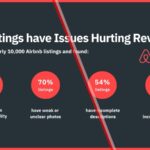Holidu Acquires Finca Mallorca to Strengthen Hold on Premium Balearic Rentals
- Munich-based vacation rental platform Holidu has acquired Cologne-based Finca Mallorca, a portal offering high-end properties across Spain’s Balearic Islands.
- Finca Mallorca is known for its curated collection of about 200 upscale rentals and its strong organic reach in German-speaking markets, due to its long-standing presence, and SEO strength.
- Holidu will keep the Finca Mallorca brand active while expanding distribution of its listings across Holidu’s own platform and 27 partner sites like HomeToGo, Trivago, and KAYAK.
- Hosts using Finca Mallorca can now use Holidu’s tech tools, including a unified booking calendar, payment processing, automated guest check-in, and professional photography.
- Holidu notes Mallorca as a key destination in its internal booking data and survey of 561 hosts, noting that: 30% of 2025 bookings are for groups of more than six, average stays are increasing from 8 to 9 days, and 53% of hosts plan to raise prices.
Snigdha’s Views:
- We’re seeing more platforms acquiring regional players to grow faster and level up tech, like HomeToGo buying Interhome, Mint House acquiring Locale, and OYO snapping up Checkmyguest.
- Holidu’s acquisition of Finca Mallorca follows the same playbook. It gains strong SEO for searches like “luxury fincas,” while listings get broader exposure and direct traffic via Holidu and partner sites.
- By keeping the Finca Mallorca brand active, Holidu signals that regional identity and local trust remain valuable assets, especially in premium markets.
- This increased visibility means property managers benefit from demand without added marketing costs, unlocking more bookings and occupancy through existing demand pipelines.
- For PMs in Spain and elsewhere, the trend is clear: platforms are evolving into brand + tech + distribution ecosystems. It’s time to weigh the value of independence versus ecosystem leverage.
Rio Eyes Stricter Rental Rules, but Airbnb Fights Back with Community Impact Push
- Airbnb has issued a strong response to proposed short-term rental regulations in Rio de Janeiro, warning that restrictions like those under consideration in Bills 107/2025 and 372/2025 could threaten host livelihoods and hurt local tourism.
- The bills require hosts to obtain municipal licenses, register with Brazil’s tourism authority, report guest data monthly, secure condo approval to operate, and also classify hosts as tourism agents.
- Airbnb cites that nearly 30% of Rio hosts are retirees, and 55% rely on income from hosting to stay in their homes.
- The company argues that STR activity is legal under Brazil’s Tenancy Law and that classifying it as hotel-like would be both economically damaging and constitutionally questionable.
- Airbnb also highlighted the sector’s economic contribution, claiming STR activity generated R$6 billion for Rio’s GDP in 2023 and supported over 100,000 jobs.
- In a broader effort to sway public perception and policymakers, Airbnb paired these advocacy efforts with the story of Kevino, a long-time host in Mexico City.
- While not directly linked to the Rio bills, Kevino’s story illustrates how STRs empower individuals, support affordable travel, and strengthen local communities—core themes in Airbnb’s global advocacy.
Snigdha’s Views:
- Brazil is a significant market, especially in Latin America. But with that growth comes political pushback, and Airbnb is now taking a two-pronged approach: expanding its host base while defending against new regulations.
- On one front, Airbnb is ramping up advocacy by emphasizing its economic impact and how STRs support local families, create jobs, and inject money into communities, especially as lawmakers in cities like Mexico City and Bogotá propose bills that could lump STRs in with hotels.
- These regulations would impose stricter compliance and higher costs on hosts, without offering the operational perks hotels enjoy.
- At the same time, Airbnb is doubling down on storytelling to attract new hosts in Latin America. Case in point: profiles like Kevino from Mexico City, a host whose story highlights the platform’s appeal as a flexible, community-rooted income opportunity.
- For existing operators, now is the time to lean into local engagement and transparency. Demonstrate how your business creates jobs, reinvests in the local economy, and avoids displacing long-term housing.
Airbnb Slams NYC’s Local Law 18 (again) as Rents and Hotel Prices Hit Record Highs
- Airbnb has launched what may be its strongest critique yet of New York City’s Local Law 18 (LL18), arguing the short-term rental ban has worsened affordability for both residents and visitors.
- The company cites new data showing Manhattan rents have hit a record $4,000/month, vacancy rates remain stuck at 3.2%, and hotel rates have surged to $320/night, more than double the national average.
- Critics argue LL18 has disproportionately hurt working-class hosts and local businesses, with a reported 70% drop in neighborhood foot traffic and $1.6 billion in lost visitor spending in the outer boroughs.
- This time, Airbnb isn’t the only voice challenging the status quo. A growing coalition of local organizations — including the Brooklyn Chamber of Commerce, the Dominican American Chamber of Commerce, and the New York Urban League — is speaking out against LL18’s consequences.
- Airbnb and its coalition propose revising LL18 to allow hosts of one- and two-family homes to rent while away, raise the guest limit from two to four, and let hosts restrict access to private areas for safety.
Snigdha’s Views:
- Airbnb knows that narrative matters just as much as data. That’s why this isn’t just about listing numbers anymore — it’s about lost jobs, small business revenue, tourism gaps, and economic pain.
- They’ve brought a whole coalition with them: business owners, community groups, former city officials, and minority-led organizations are all on the same page, pushing for change.
- Their involvement lends credibility and signals that this is no longer a tech-versus-government standoff, but a citywide conversation about livelihoods and community priorities.
- Advocacy from groups like RHOAR, combined with Airbnb’s data-driven campaigns and grassroots pressure, led to proposals — and some actual easing of LL18’s strictest rules last year.
- These proposals marked the first signs of policy softening — yet, as Airbnb points out, even with these tweaks, affordability has continued to decline, and hotel prices have reached record levels.
- Airbnb’s taken this approach before, challenging tough STR laws with data, local alliances in cities like Barcelona, New Orleans, and Montreal. But NYC carries more weight. It’s a high-profile, global stage. If they can shift the narrative here, it could influence how short-term rental regulations are written in other major cities across the U.S. and Europe.
Snigdha Parghan is a Content Marketer at RSU by PriceLabs, where she creates articles, manages daily social media, and repurposes news and analysis into podcasts and video content for short-term rental professionals. With a focus on technology, operations, and marketing, Snigdha helps property managers stay informed and adapt to industry shifts.







